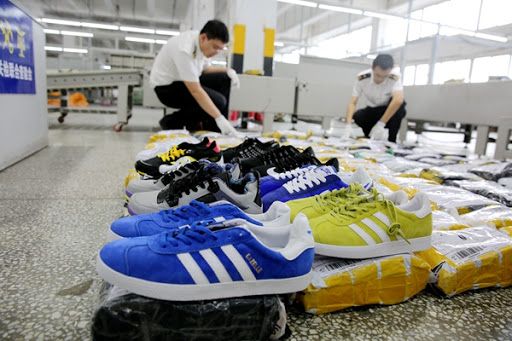China and Hong Kong account for the majority of counterfeit products seized at US customs, a report from the Trade Representation (USTR) indicated.
That document, Special Report 301, is the result of an annual review of the status of intellectual property protection and enforcement in US trading partners around the world.
More than anything, China remains the world’s leading source of counterfeit and pirated goods, reflecting, according to the USTR, its inability to take decisive action to curb the widespread manufacture, domestic sale, and export of counterfeit goods.
As in previous years, China and Hong Kong account for more than 80% of intellectual property seizures in the United States.
The massive problem not only affects the interests of intellectual property rights holders, but also poses health and safety risks.
According to the USTR report, rights holders report that the production, distribution, and sale of counterfeit drugs, fertilizers, pesticides, and poorly regulated pharmaceutical ingredients remain widespread in China.
Counterfeit products
In 2020, the Office of the National Leading Group on Combating the Infringement and Counterfeiting of Intellectual Property Rights, Supreme People’s Court of China (CSP) and several other agencies jointly issued detailed regulations for the destruction of counterfeit goods as well as materials and tools used primarily for the manufacture and production of such goods.
The CSP also issued two judicial interpretations related to the destruction of counterfeit products in civil and criminal proceedings.
China has reported enforcement actions at the border and in physical markets, and rights holders have indicated more proactive efforts by administrative and criminal authorities to conduct investigations.
Medicines
In particular, the recently amended Penal Law introduces criminal penalties for selling drugs without regulatory approval, providing false materials for regulatory applications, or falsifying production or testing records.
In addition, China amended its Drug Administration Law in 2019 to require that active pharmaceutical ingredients (APIs) used in drug production must comply with good manufacturing practice regulations, but did not provide definitions under the amended law that would cover all APIs.
As the top leading manufacturer and exporter of pharmaceutical ingredients, China has yet to close the gaps in regulatory oversight.
China does not regulate manufacturers who do not declare their intention to manufacture APIs for medicinal use.
It also does not subject exports to regulatory review, allowing many bulk chemical manufacturers to produce and export active pharmaceutical ingredients outside of regulatory controls.
In addition, China lacks central enforcement coordination against counterfeit pharmaceutical products or ingredients, resulting in ineffective enforcement at the provincial level and with regard to online sales.
![]()

